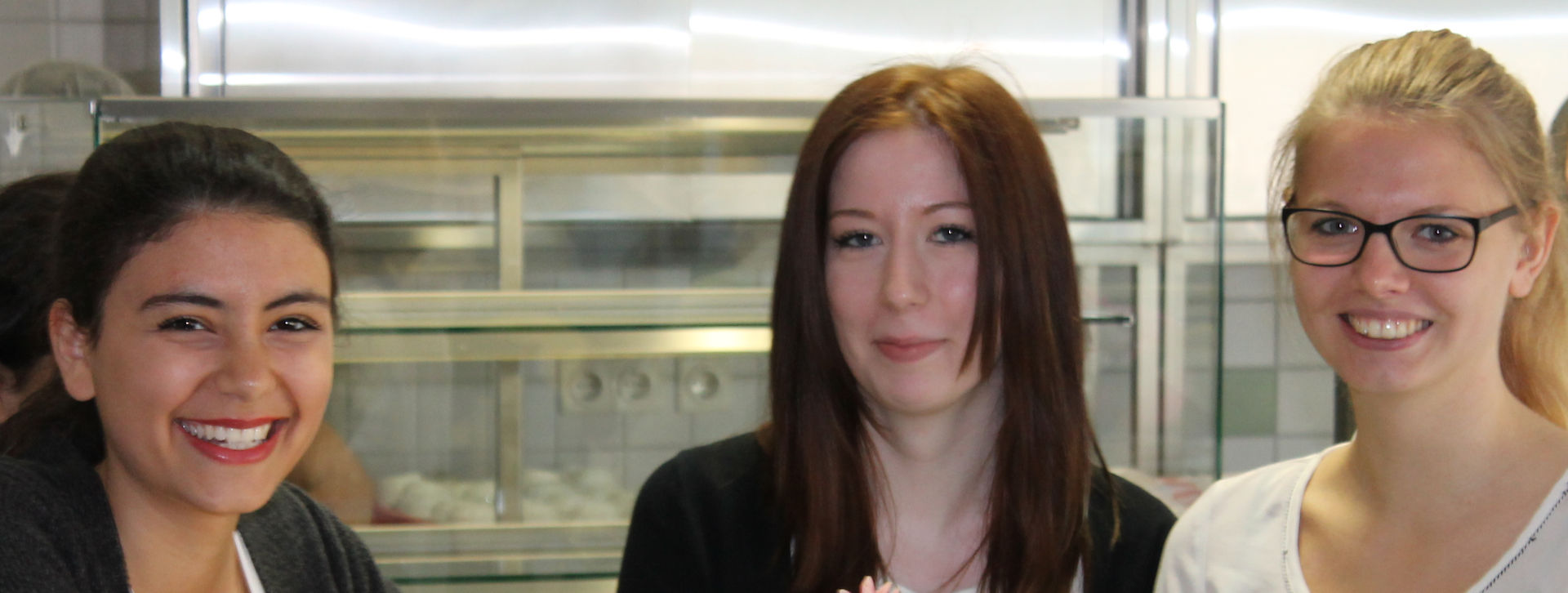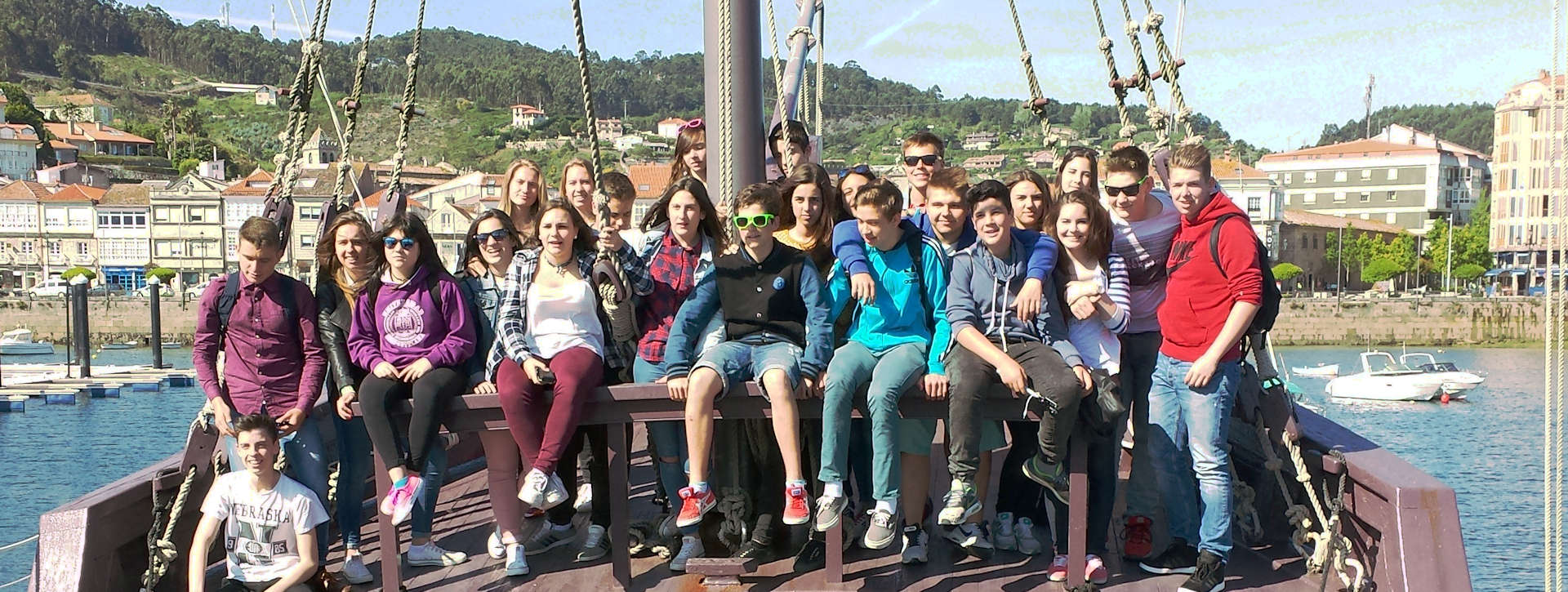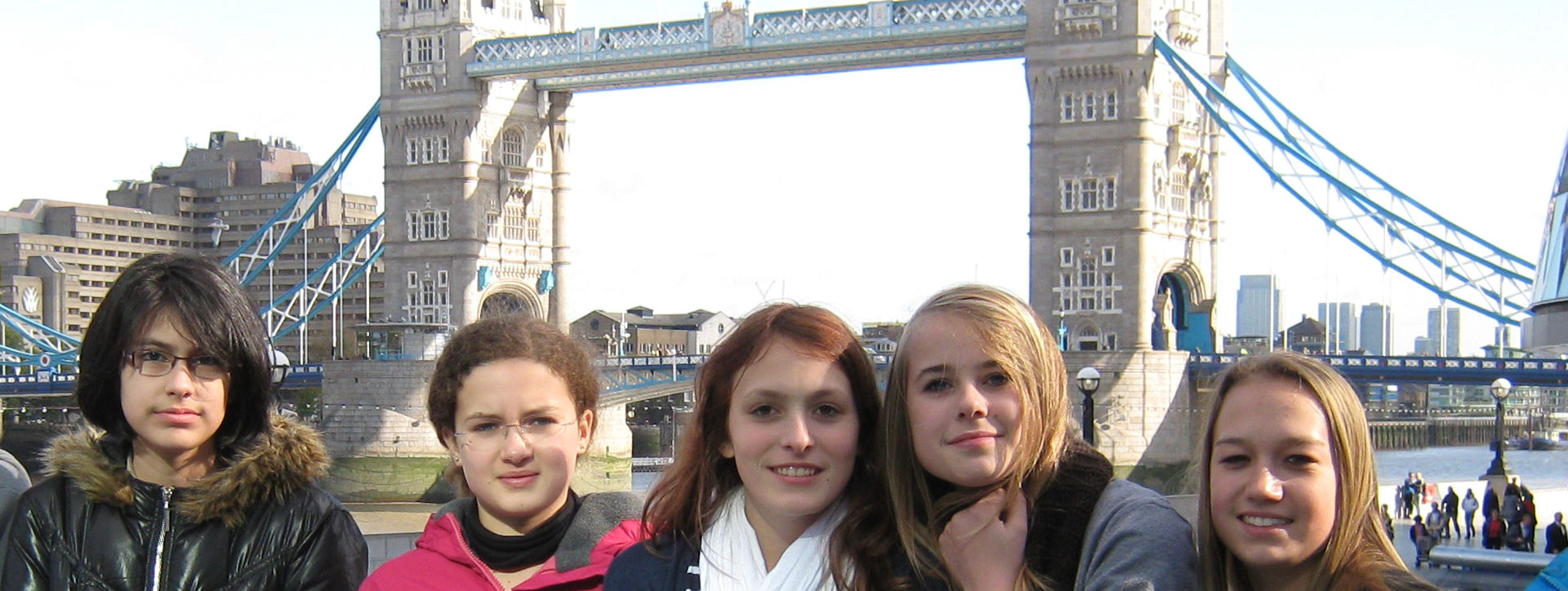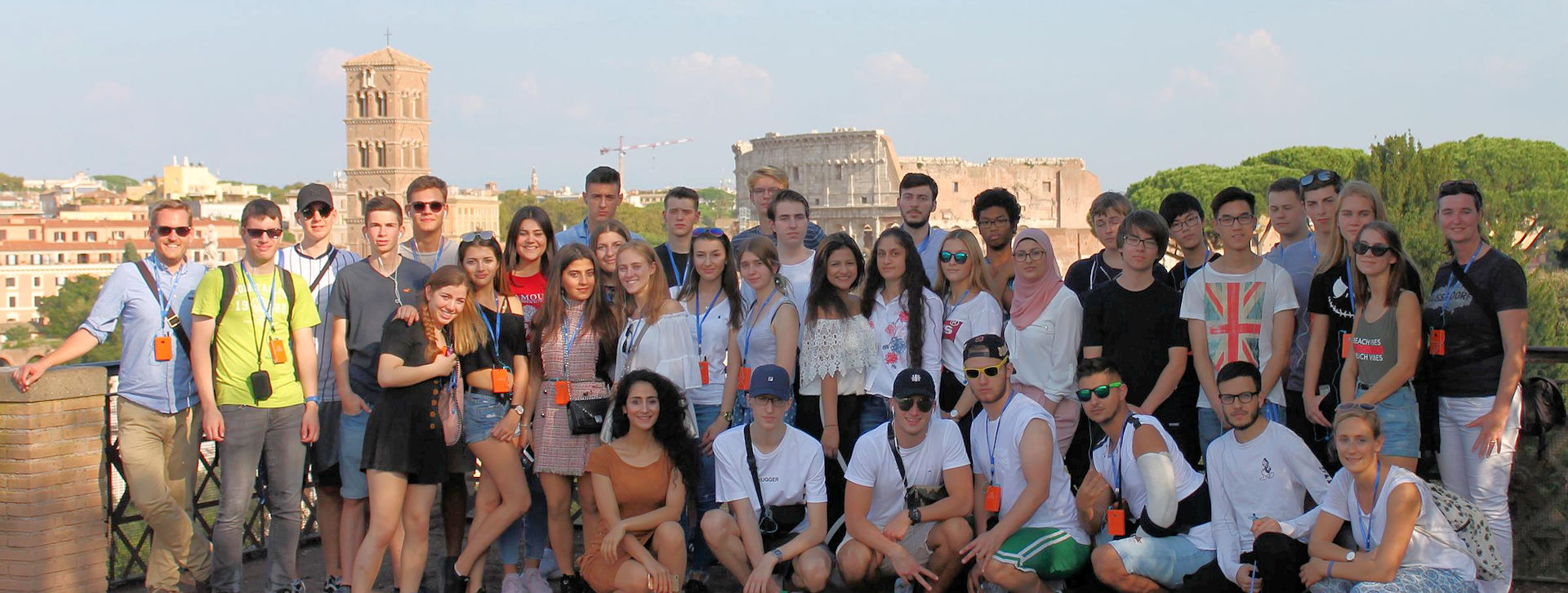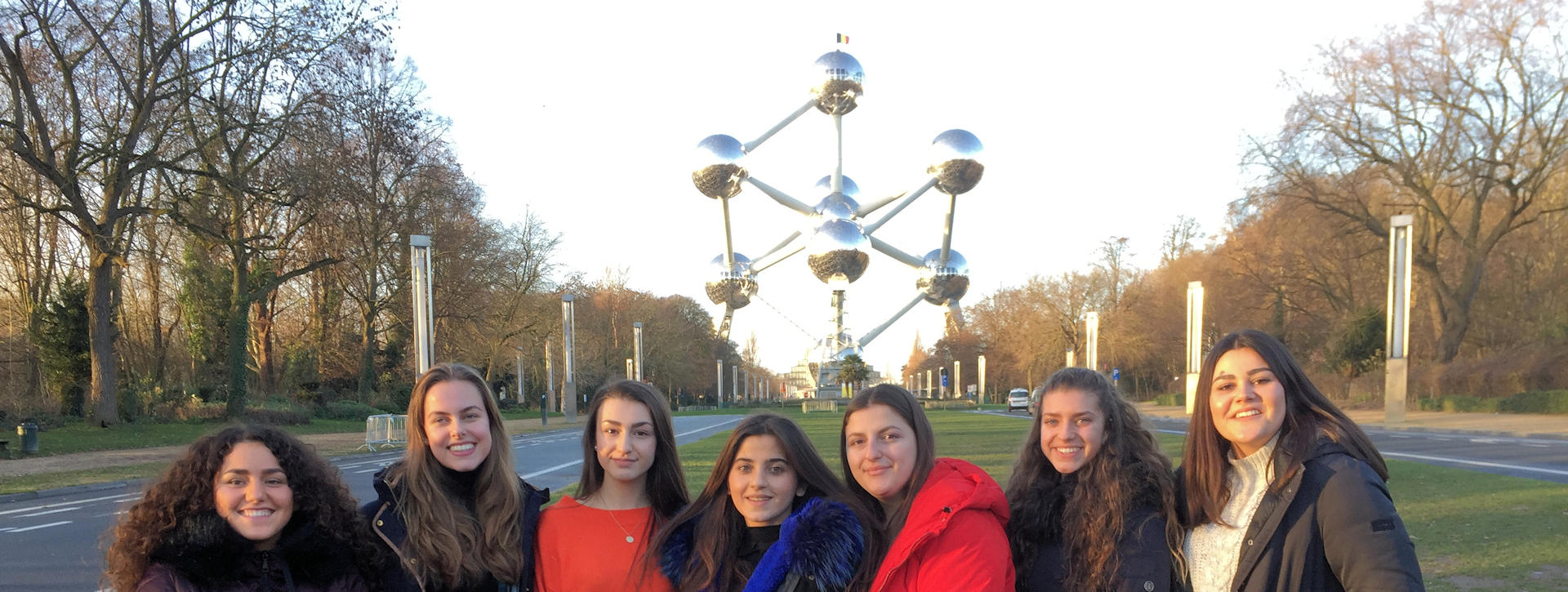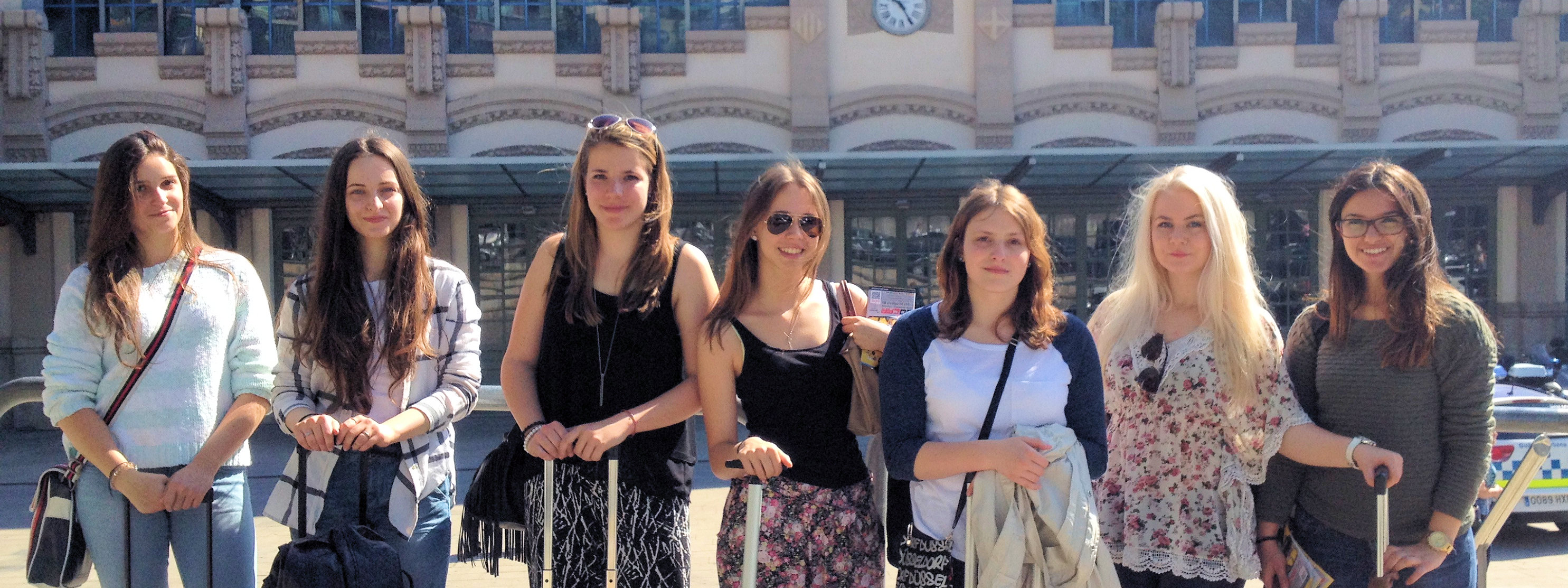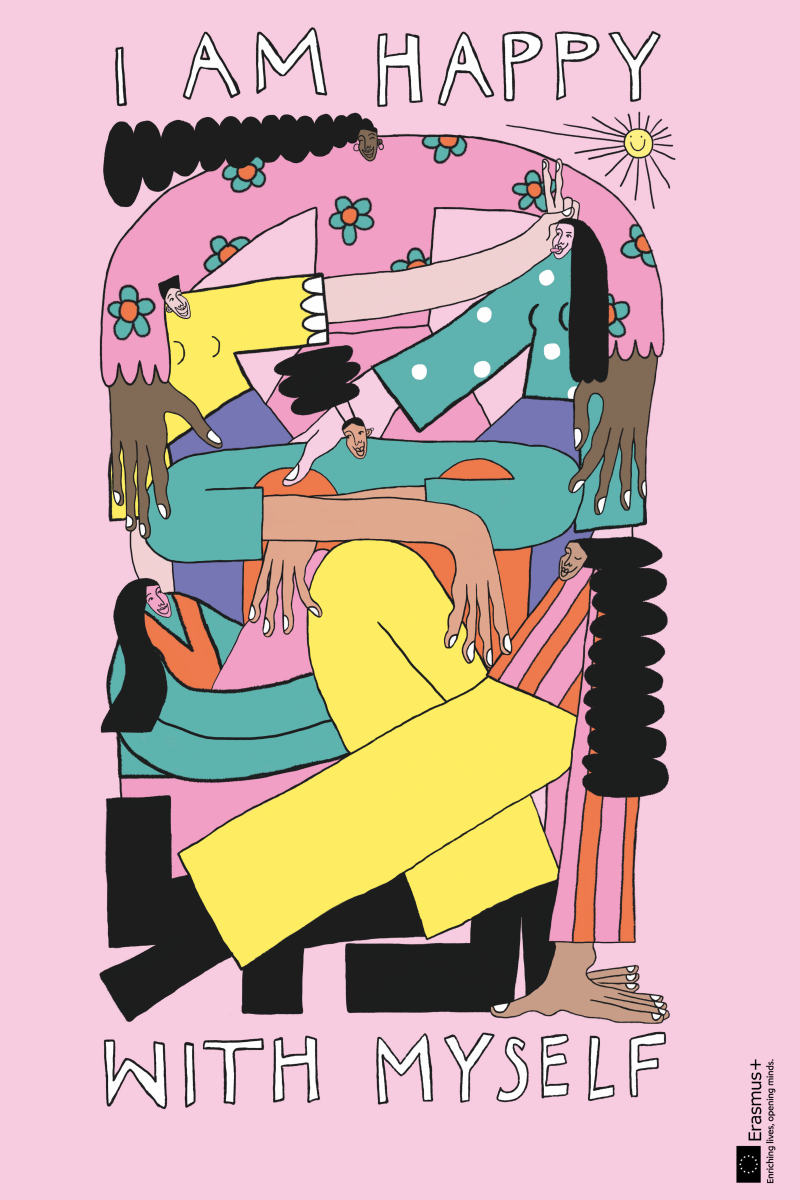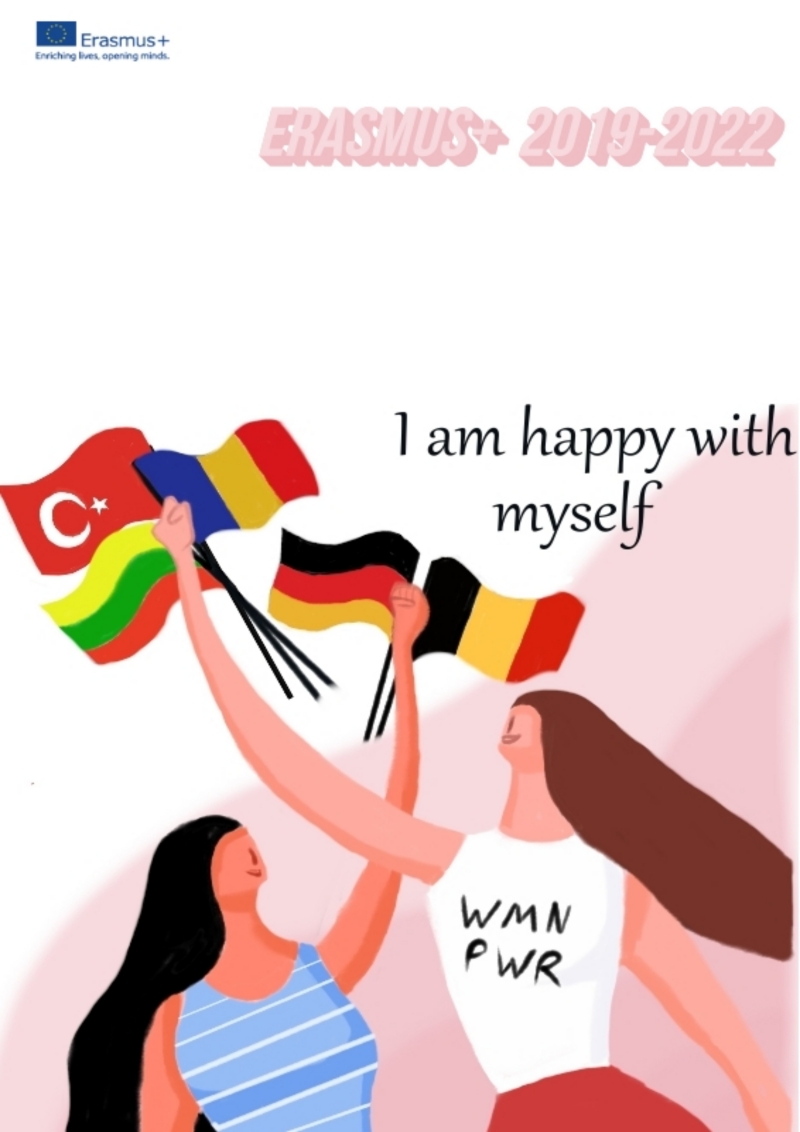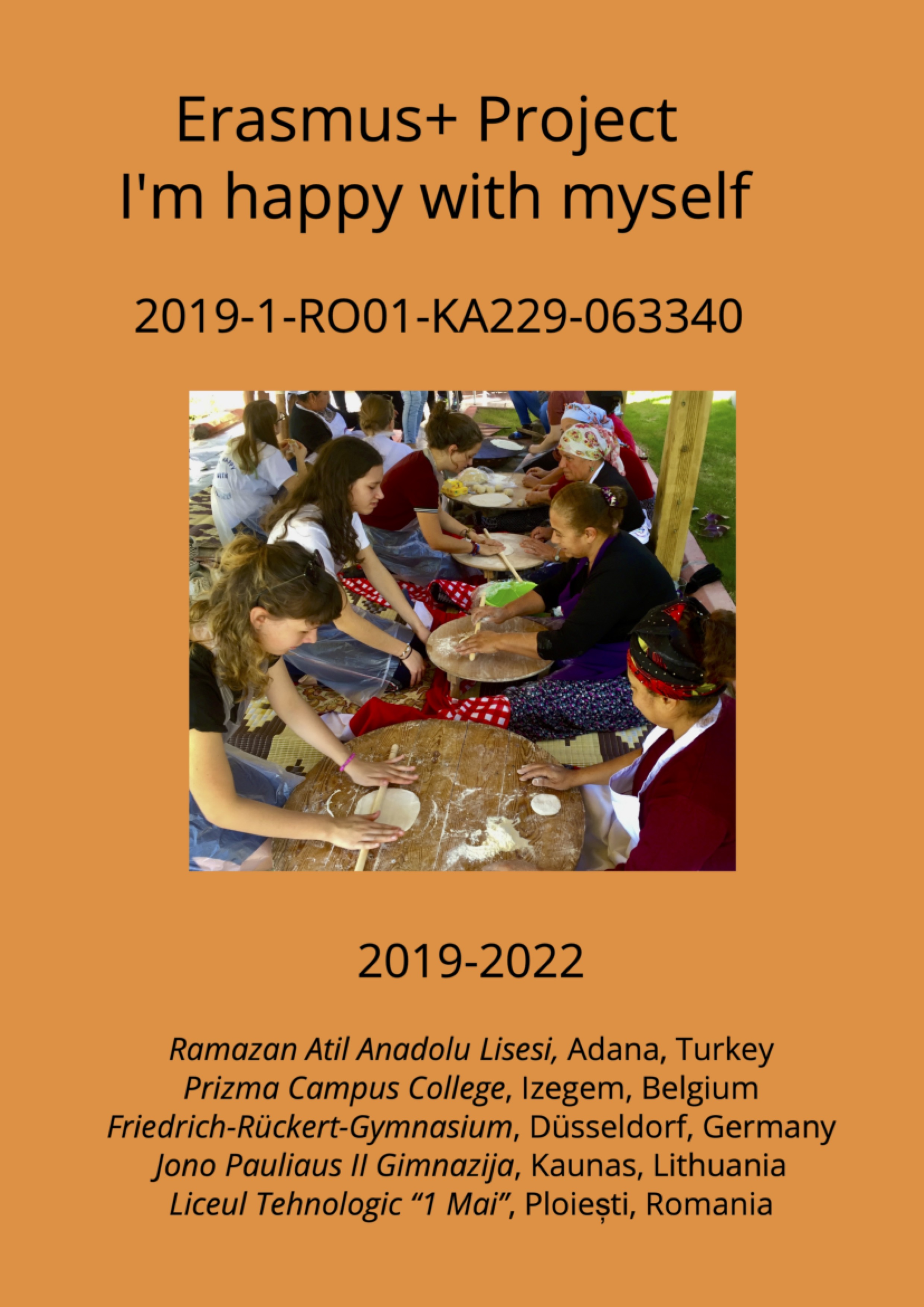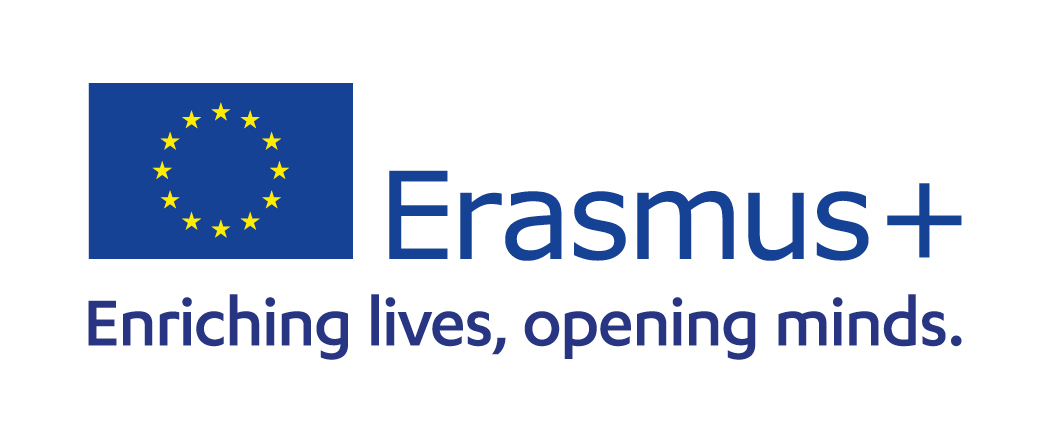
Erasmus+ Project "I am happy with myself"
Im Jahr 2019 starteten wir am FRG in ein Abenteuer das uns einmal quer durch Europa schicken sollte. Im Rahmen des Erasmus+ Programms der Europäischen Union reisten wir nach Adana / Türkei, Izegem / Belgien, Kaunas / Litauen und Ploesti / Rumänien - zudem emfingen wir Jugendliche und Lehrkäfte unserer vier Partnerschulen in Düsseldorf. Damit Sie auch einen Einblick in unsere spannenden Reisen erlangen können, stellen wir Ihnen auf dieser Seite das Projekt vor. Und damit es möglichst authentisch ist, wechseln wir nun in die Projektsprache. Welcome to our project.
The main focus of our project lies on gender equality in Europe - even though we tend to think that we live in a well-developed society we are facing inequality issued on a daily basis. We wanted to raise awareness for those issues, introduce women as role models for our young people and invite our students - as well as teachers - to question the way we interact in our society to make a difference in the future.
Therefore we organised five mobilities is the respective cities in the participating countries. Each meeting had a different focus regarding the topic of gender equality and provided an insight into the local culture as well.
This project serves the sustainability and dissemination of the EU-funded project, I am happy with myself, which has been adopted by the Romanian NA. The content of project is one of the EU targets: Equality between women and men is a fundamental EU value and a driving force for the EU goal and economic growth.
The Council of Europe Gender Equality Strategies is the guidelines of the objectives we wish to achieve in this project. The first strategic aim is to fight against sex stereotypes and sexism. Gender stereotypes limit the development of 'males 'and females' natural abilities and capacity, as well as their educational and professional experiences and opportunities in their lives in general. Based on the realities in the countries of our 5 schools, we have planned activities to prevent these prejudices.
Eramus+ is the EU's programme to promote education, training, youth and sport and we are very grateful to have been able to have this experience through EU funding and the support of the Pedagogical Exchange Service. The European Commission's support for the production of this publication does not constitute an endorsement of its contents, which reflects the views only of the authors, and the Commission cannot be held responsible for any use which may be made of the information contained therein.



